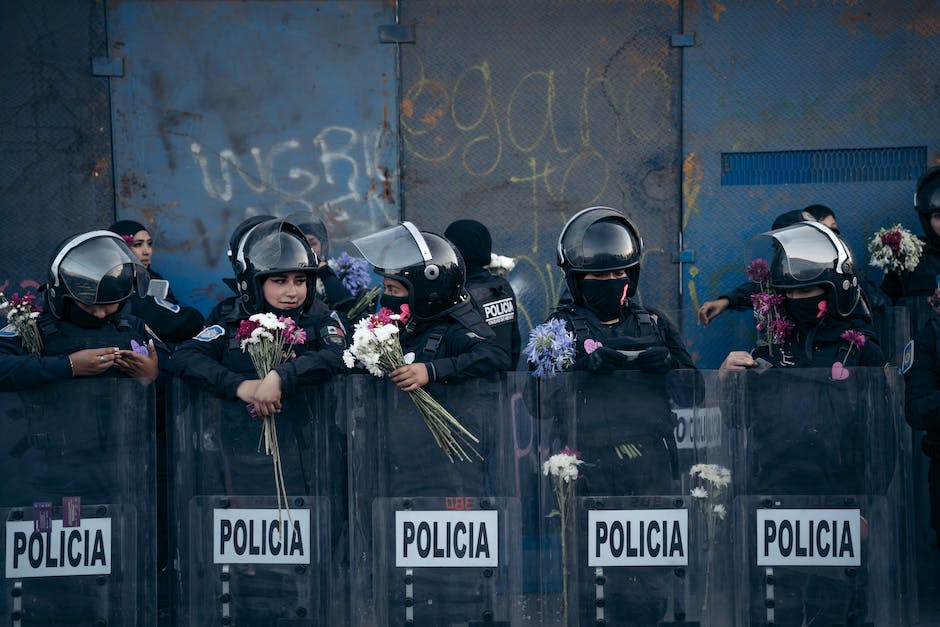Table of Contents
Advocating for Children’s Rights: The Life and Legacy of Kailash Satyarthi
Introduction
Kailash Satyarthi is a renowned advocate for children’s rights who has dedicated his life to fighting against child labor and promoting education for all children. His tireless efforts have earned him international recognition and numerous accolades, including the Nobel Peace Prize in 2014. Satyarthi’s work has had a profound impact on the lives of countless children, empowering them to break free from the shackles of exploitation and pursue a brighter future. This article explores the life and legacy of Kailash Satyarthi, highlighting his significant contributions to the advancement of children’s rights globally.
The Early Life and Influences of Kailash Satyarthi

Advocating for Children’s Rights: The Life and Legacy of Kailash Satyarthi
Kailash Satyarthi, a renowned Indian children’s rights activist, has dedicated his life to fighting for the rights of the most vulnerable members of society. Born on January 11, 1954, in Vidisha, Madhya Pradesh, India, Satyarthi’s early life experiences and influences shaped his passion for social justice and his unwavering commitment to improving the lives of children.
Growing up in a middle-class family, Satyarthi witnessed firsthand the stark inequalities that plagued Indian society. Poverty, child labor, and lack of access to education were prevalent issues that deeply affected him. These early experiences ignited a fire within him, propelling him towards a lifelong mission to eradicate child labor and ensure every child’s right to education.
Satyarthi’s parents played a crucial role in shaping his values and beliefs. His father, a police officer, instilled in him a sense of justice and the importance of standing up for what is right. His mother, a homemaker, taught him compassion and empathy towards others. These values became the foundation of his work as a children’s rights activist.
As a young man, Satyarthi pursued a degree in electrical engineering. However, his true calling lay in advocating for the rights of children. In 1980, he founded the Bachpan Bachao Andolan (Save the Childhood Movement), a grassroots organization dedicated to rescuing children from bonded labor and advocating for their rights. Through this organization, Satyarthi and his team conducted daring raids on factories and workshops where children were forced to work under inhumane conditions.
Satyarthi’s work gained international recognition when he led the Global March against Child Labor in 1998. This historic march, which covered 80,000 kilometers across 103 countries, aimed to raise awareness about child labor and put pressure on governments to take action. The march culminated in a meeting with the then-UN Secretary-General, Kofi Annan, where Satyarthi presented a draft for a new international law against child labor.
Throughout his career, Satyarthi has faced numerous challenges and risks. He has been threatened, attacked, and even imprisoned for his activism. However, these obstacles have only strengthened his resolve to fight for children’s rights. His unwavering determination and courage have made him a symbol of hope for millions of children around the world.
Satyarthi’s work has not gone unnoticed. In 2014, he was jointly awarded the Nobel Peace Prize for his efforts to end child labor and promote children’s rights. This prestigious recognition brought global attention to the urgent need to address the issue of child labor and inspired countless individuals and organizations to join the fight.
Today, Satyarthi continues to advocate for children’s rights through his organization, the Kailash Satyarthi Children’s Foundation. The foundation works towards creating a world where every child is free, safe, and educated. Satyarthi firmly believes that education is the key to breaking the cycle of poverty and exploitation, and he tirelessly campaigns for every child’s right to quality education.
In conclusion, Kailash Satyarthi’s early life experiences and influences shaped his passion for social justice and his unwavering commitment to improving the lives of children. His work as a children’s rights activist has brought global attention to the issue of child labor and inspired countless individuals to join the fight. Satyarthi’s legacy serves as a reminder that every child deserves a childhood free from exploitation and the opportunity to fulfill their potential.
Kailash Satyarthi’s Fight Against Child Labor
Kailash Satyarthi’s Fight Against Child Labor
Kailash Satyarthi, a renowned Indian activist, has dedicated his life to fighting against child labor and advocating for children’s rights. His tireless efforts have not only brought attention to this pressing issue but have also led to significant changes in legislation and public perception.
Child labor is a global problem that affects millions of children worldwide. These children are forced into hazardous work environments, deprived of education, and subjected to physical and emotional abuse. Satyarthi recognized the urgency of this issue and made it his mission to eradicate child labor in all its forms.
One of Satyarthi’s most notable achievements was the establishment of the Global March Against Child Labor in 1998. This movement brought together millions of people from different countries, united in their commitment to ending child labor. The march raised awareness about the issue and put pressure on governments and corporations to take action.
Satyarthi’s advocacy work also involved rescuing children from exploitative situations. He founded Bachpan Bachao Andolan (Save Childhood Movement), an organization dedicated to rescuing and rehabilitating child laborers. Through this organization, Satyarthi and his team have rescued thousands of children from factories, mines, and other hazardous work environments.
In addition to rescuing children, Satyarthi has been instrumental in rehabilitating them and ensuring their access to education. He firmly believes that education is the key to breaking the cycle of poverty and exploitation. Satyarthi has established numerous schools and rehabilitation centers where rescued children can receive an education and regain their childhood.
Satyarthi’s fight against child labor has not been without challenges. He has faced threats, violence, and even imprisonment for his activism. However, these obstacles have only strengthened his resolve to continue fighting for children’s rights. Satyarthi’s unwavering dedication and courage have inspired countless individuals and organizations to join the cause.
Thanks to Satyarthi’s efforts, child labor has become a prominent issue on the global agenda. Governments and international organizations have taken steps to address the problem, and laws have been enacted to protect children from exploitation. Satyarthi’s advocacy work has also led to the adoption of international conventions and treaties aimed at eradicating child labor.
However, despite these achievements, child labor remains a persistent problem in many parts of the world. Satyarthi acknowledges that there is still much work to be done. He continues to raise awareness, lobby for stronger legislation, and collaborate with governments and organizations to ensure the rights and well-being of every child.
Satyarthi’s fight against child labor is not just about rescuing individual children or changing laws; it is about transforming society’s attitudes towards children. He believes that every child deserves to be treated with dignity and respect, and that their rights should be protected at all costs. Satyarthi’s legacy is not only the tangible changes he has brought about but also the inspiration he has provided to future generations of activists.
In conclusion, Kailash Satyarthi’s fight against child labor has been a lifelong commitment to advocating for children’s rights. Through his activism, he has raised awareness, rescued and rehabilitated child laborers, and influenced legislation and public perception. Satyarthi’s legacy is one of courage, dedication, and a relentless pursuit of justice for every child. His work serves as a reminder that the fight against child labor is far from over and that we all have a role to play in ensuring a better future for children worldwide.
Impact of Kailash Satyarthi’s Nobel Peace Prize on Children’s Rights
Advocating for Children’s Rights: The Life and Legacy of Kailash Satyarthi
Kailash Satyarthi, an Indian children’s rights activist, has dedicated his life to fighting for the rights of the most vulnerable members of society. His tireless efforts have not only brought attention to the plight of millions of children around the world but have also led to significant changes in legislation and policies. Satyarthi’s work was recognized in 2014 when he was awarded the Nobel Peace Prize, a momentous occasion that had a profound impact on the global movement for children’s rights.
Satyarthi’s journey as an advocate for children’s rights began in the early 1980s when he founded Bachpan Bachao Andolan (Save the Childhood Movement). Through this organization, he rescued thousands of children from bonded labor, trafficking, and other forms of exploitation. Satyarthi’s approach was not limited to rescuing children; he also focused on rehabilitating them and ensuring their access to education and a better future.
The Nobel Peace Prize brought international attention to Satyarthi’s work and the issue of child labor. It served as a powerful platform for him to raise awareness about the millions of children who are forced into labor and denied their basic rights. Satyarthi used this opportunity to call on governments, businesses, and individuals to take action and prioritize the eradication of child labor.
The impact of Satyarthi’s Nobel Peace Prize on children’s rights cannot be overstated. It not only elevated the issue to the global stage but also inspired countless individuals and organizations to join the fight. The prize served as a catalyst for change, prompting governments to enact stricter laws and policies to protect children from exploitation. It also encouraged businesses to adopt ethical practices and ensure that their supply chains are free from child labor.
One of the most significant outcomes of Satyarthi’s Nobel Peace Prize was the establishment of the Global March Against Child Labor. This movement, initiated by Satyarthi himself, brought together millions of people from around the world to demand an end to child labor. The Global March played a crucial role in pressuring governments to take action and raising awareness about the issue. It also paved the way for the adoption of international conventions and protocols aimed at eradicating child labor.
Satyarthi’s Nobel Peace Prize also had a profound impact on the lives of individual children. His recognition and the subsequent media attention brought hope to countless children who had been trapped in exploitative situations. It gave them the courage to speak up and seek help, knowing that their voices would be heard. Satyarthi’s work has empowered children to reclaim their rights and has given them the opportunity to build a brighter future.
In conclusion, Kailash Satyarthi’s Nobel Peace Prize has had a transformative impact on the global movement for children’s rights. His tireless advocacy and dedication to rescuing and rehabilitating children from exploitation have brought attention to the issue of child labor and inspired individuals and governments to take action. Satyarthi’s legacy will continue to shape the fight for children’s rights, ensuring that every child has the opportunity to live a life free from exploitation and with access to education and a better future.
Continuing the Legacy: How to Advocate for Children’s Rights
Advocating for Children’s Rights: The Life and Legacy of Kailash Satyarthi
Kailash Satyarthi, a renowned Indian children’s rights activist, has dedicated his life to fighting for the rights of the most vulnerable members of society. His tireless efforts have not only brought attention to the plight of millions of children around the world but have also inspired countless individuals to join the cause. Satyarthi’s legacy serves as a powerful reminder that anyone can make a difference in the lives of children, and that advocating for their rights is a responsibility we all share.
One of the key lessons we can learn from Satyarthi’s work is the importance of raising awareness about the issues children face. By shining a light on child labor, trafficking, and exploitation, Satyarthi has been able to mobilize support and create a global movement for change. To continue his legacy, we must follow in his footsteps and educate ourselves and others about the realities children face in different parts of the world.
Another crucial aspect of advocating for children’s rights is building strong partnerships and alliances. Satyarthi has collaborated with governments, NGOs, and other activists to amplify his impact and bring about systemic change. By working together, we can pool our resources, expertise, and influence to address the root causes of child rights violations and create lasting solutions.
Furthermore, it is essential to engage with policymakers and advocate for legislative changes that protect children’s rights. Satyarthi has been instrumental in pushing for the enactment and enforcement of laws that prohibit child labor and trafficking. By lobbying governments and holding them accountable, we can ensure that children are afforded the legal protections they deserve.
In addition to legislative changes, grassroots initiatives play a vital role in advocating for children’s rights. Satyarthi has empowered communities to take action and create safe spaces for children through his organization, Bachpan Bachao Andolan (Save the Childhood Movement). By mobilizing local communities, we can address the specific needs and challenges faced by children in different regions and work towards sustainable solutions.
Education is another critical component of advocating for children’s rights. Satyarthi firmly believes that education is not only a fundamental right but also a powerful tool for breaking the cycle of poverty and exploitation. By advocating for quality education for all children, we can empower them to realize their full potential and create a better future for themselves and their communities.
Lastly, it is crucial to support organizations and initiatives that are working towards the protection and empowerment of children. Satyarthi’s organization, along with numerous other NGOs, provides direct assistance to children who have been rescued from exploitative situations. By donating our time, resources, or expertise, we can contribute to the ongoing efforts to safeguard children’s rights and ensure their well-being.
In conclusion, Kailash Satyarthi’s life and legacy serve as an inspiration for all those who believe in the power of advocacy and the importance of protecting children’s rights. To continue his work, we must raise awareness, build partnerships, engage with policymakers, empower communities, promote education, and support organizations working towards the betterment of children’s lives. By doing so, we can honor Satyarthi’s legacy and create a world where every child can thrive and fulfill their potential.
Q&A
1. Who is Kailash Satyarthi?
Kailash Satyarthi is an Indian children’s rights activist and Nobel Peace Prize laureate.
2. What is Kailash Satyarthi known for?
Kailash Satyarthi is known for his advocacy and activism in fighting against child labor and for children’s rights globally.
3. What are some of Kailash Satyarthi’s achievements?
Kailash Satyarthi has rescued thousands of children from bonded labor and slavery, and has played a significant role in the development of international conventions on child labor and trafficking.
4. What is the legacy of Kailash Satyarthi?
Kailash Satyarthi’s legacy lies in his tireless efforts to protect and promote children’s rights, raising awareness about child labor and advocating for their education and well-being worldwide.
Conclusion
In conclusion, Kailash Satyarthi’s life and legacy have been dedicated to advocating for children’s rights. Through his tireless efforts, he has brought attention to the issues of child labor, trafficking, and exploitation, and has worked towards creating a world where every child can live a life free from violence and exploitation. Satyarthi’s work has not only raised awareness about these issues but has also led to concrete actions and policy changes to protect children’s rights. His commitment and determination serve as an inspiration to others, reminding us of the importance of standing up for the rights and well-being of children everywhere.




